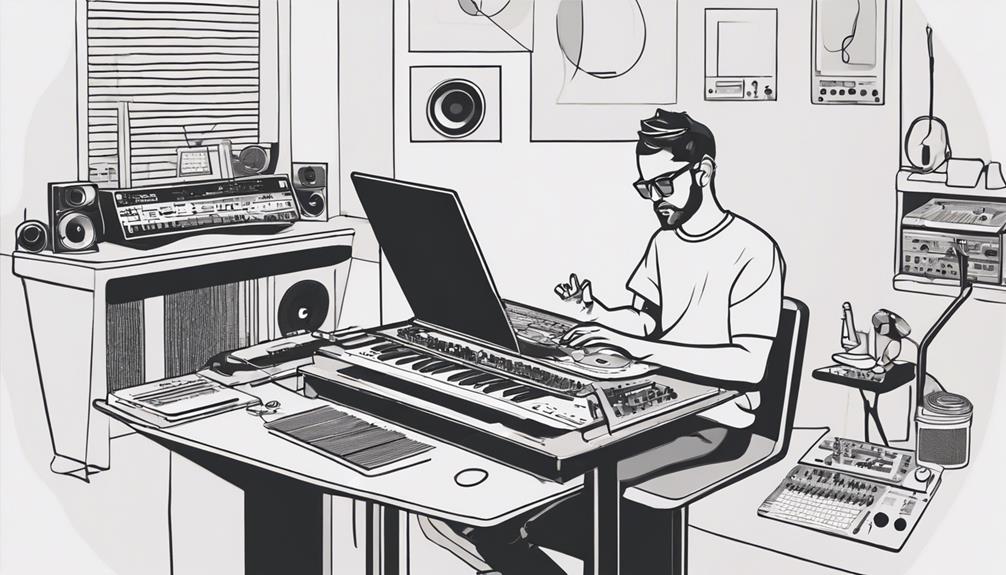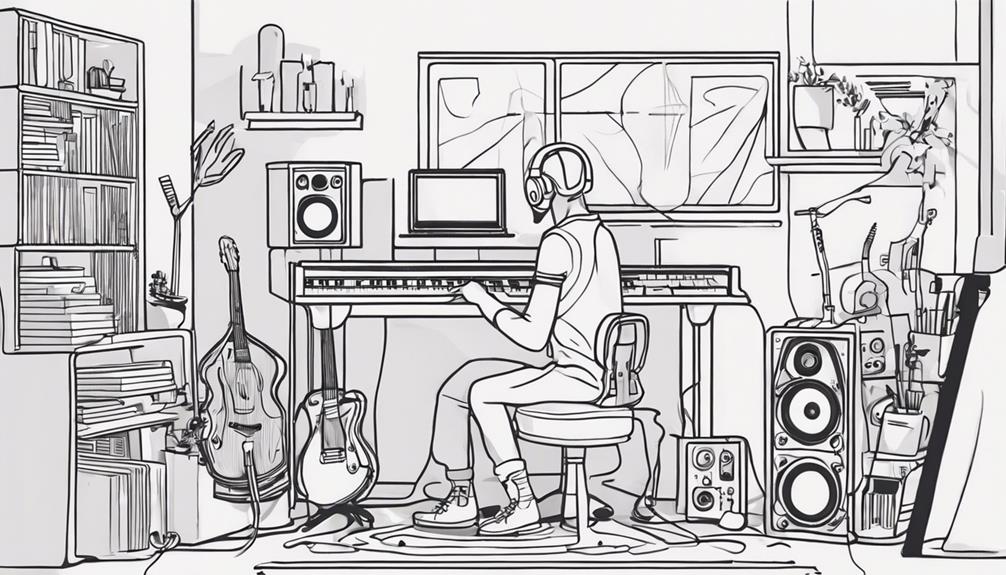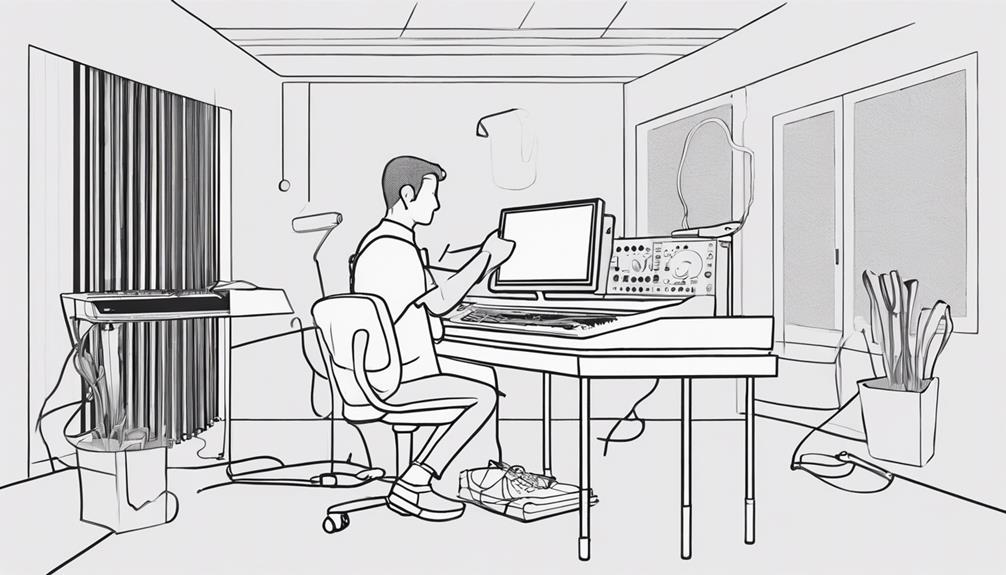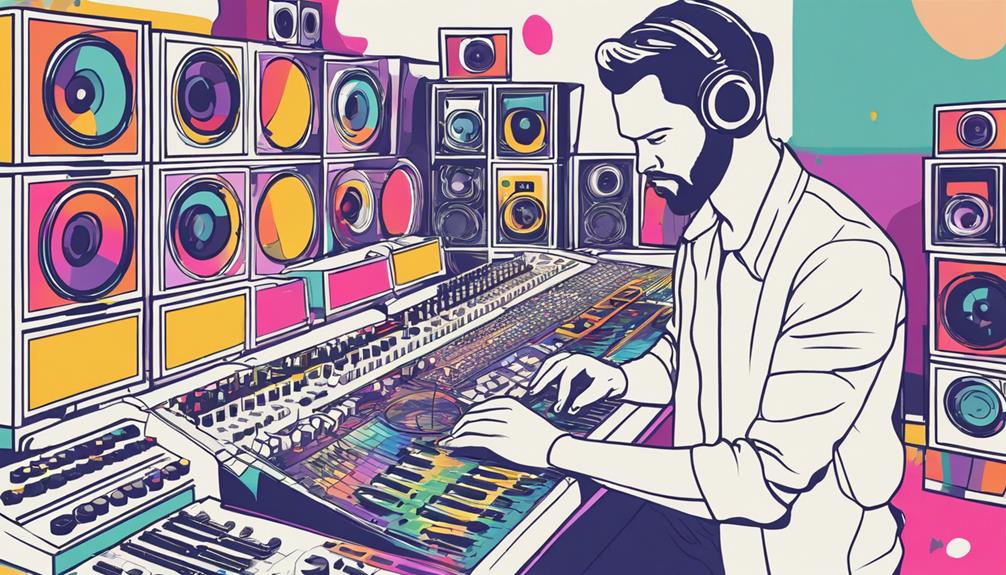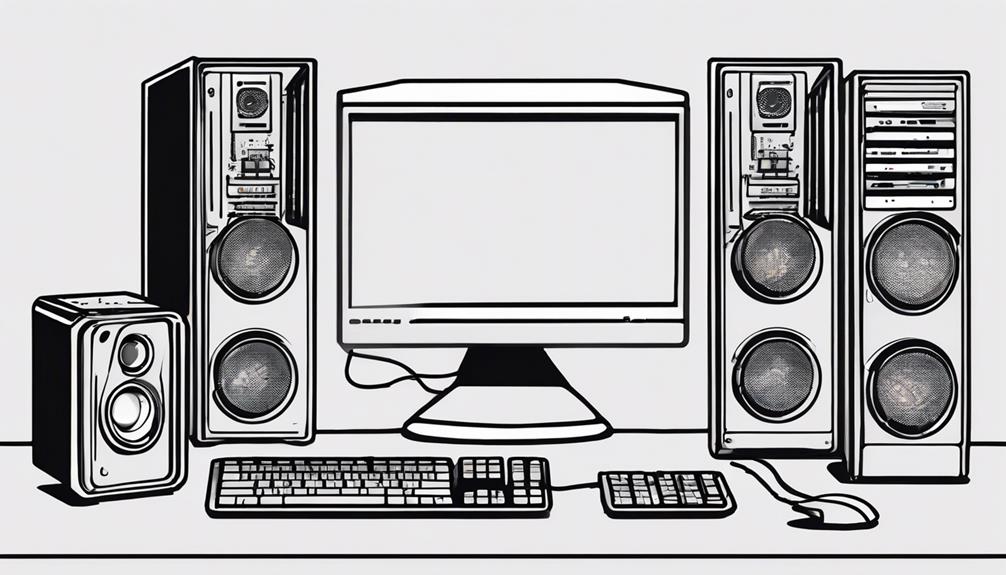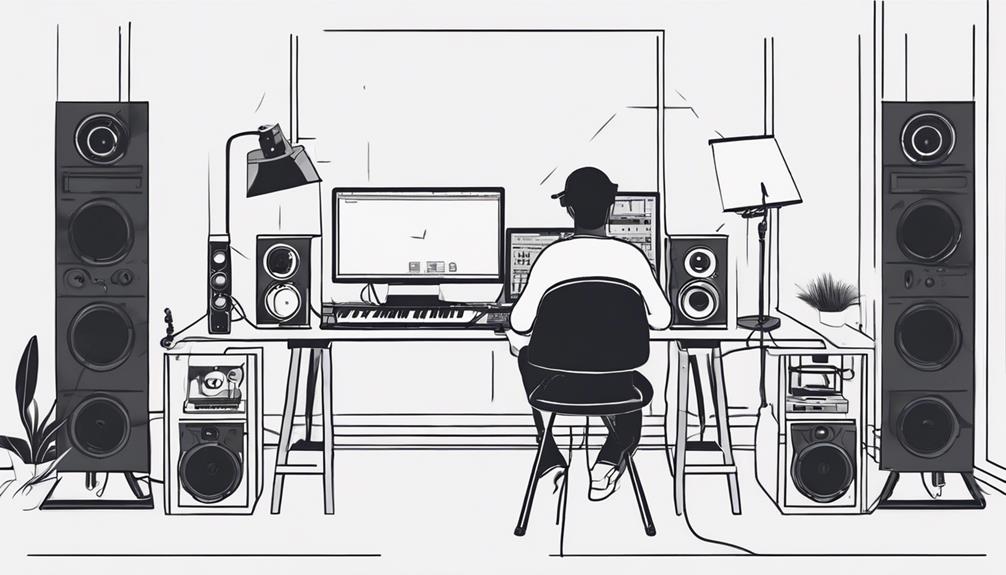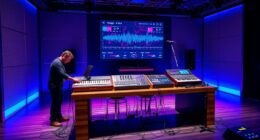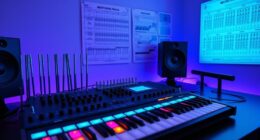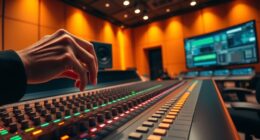To earn money from music production, focus on multiple sources like streaming royalties, music sales, YouTube monetization, sync licensing, online production services, and brand growth. Generate revenue through platforms like Spotify and Bandcamp, explore YouTube's Partner Program, and tap into sync licensing via platforms like Musicbed. Offer virtual studio sessions and remote mixing services globally. Grow your brand on social media, collaborate with influencers, and create engaging content. These proven strategies can boost your income substantially.
Key Takeaways
- Utilize streaming royalties on platforms like Spotify.
- Monetize on YouTube through the Partner Program.
- Explore sync licensing with platforms like Musicbed.
- Offer online production services globally.
- Grow brand presence through social media and collaborations.
Streaming Royalties and Music Sales
How much can you earn from streaming royalties and music sales as a music producer?
Streaming royalties can bring in an average of $0.003-0.005 per stream on platforms like Spotify, while music sales through services such as iTunes and Bandcamp offer revenue opportunities. Platforms like Bandcamp can give producers up to 70% of the revenue from music sales.
Popular streaming services like Spotify and Apple Music provide avenues for music producers to earn royalties based on the number of streams and purchases. The earnings from streaming royalties and music sales can vary depending on the volume of streams and purchases you receive.
Utilize YouTube for Monetization
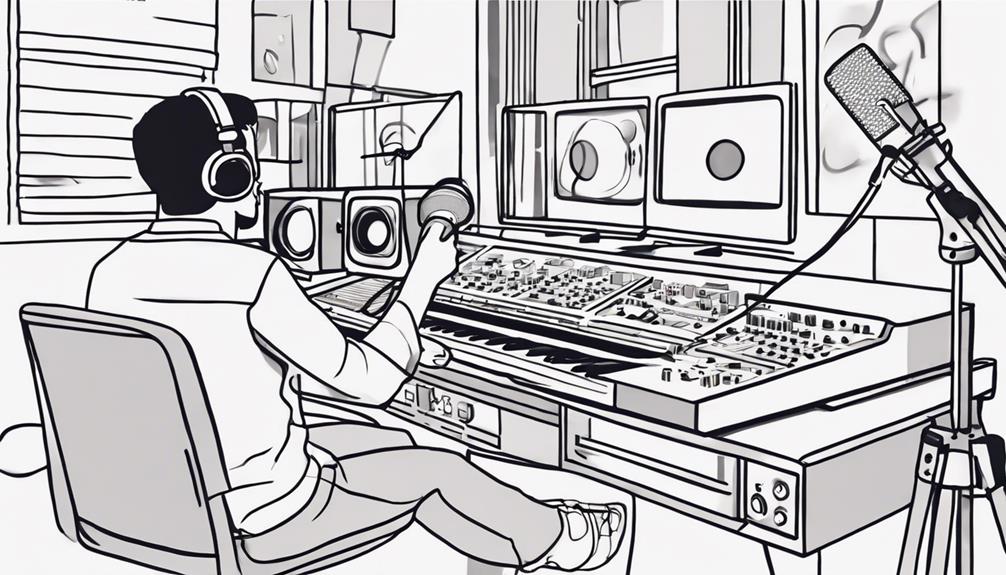
To expand your revenue streams as a music producer, consider leveraging YouTube for monetization opportunities. Monetize your YouTube channel by creating engaging music production videos that can help you earn revenue through the YouTube Partner Program.
By building a loyal audience and consistently uploading quality content, music producers have the potential to generate income from ad revenue on the platform. Collaborating with other YouTubers and brands can further enhance your monetization opportunities.
Successful music producers on YouTube have shown that by focusing on views, watch time, and engagement metrics, they can increase their chances of earning substantial income. Remember to follow YouTube's guidelines and policies to make sure your channel remains eligible for monetization.
Explore different strategies such as sponsorships and memberships to diversify your revenue streams and maximize your earning potential as a music producer on YouTube.
Explore Sync Licensing Opportunities
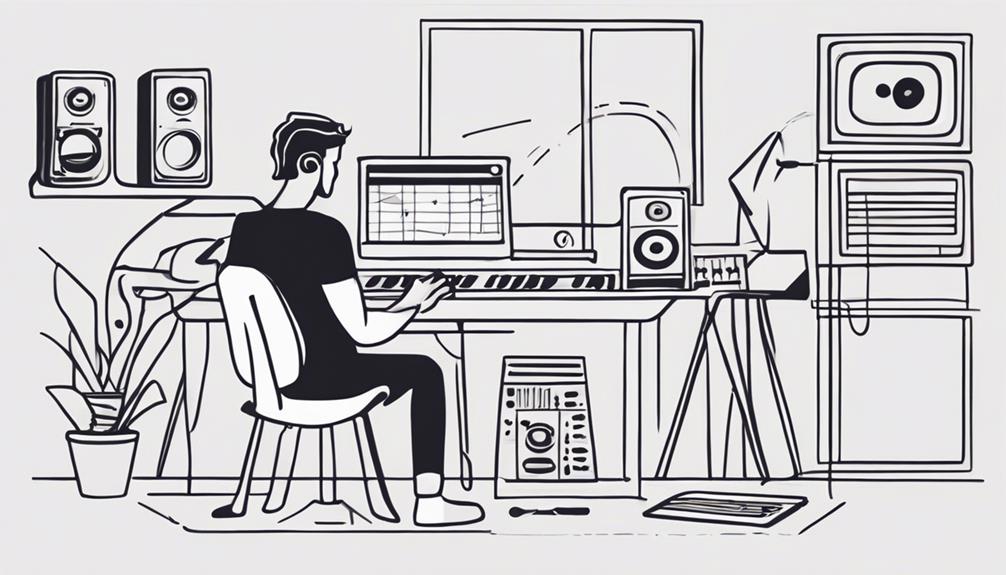
When looking to earn money from your music production skills, exploring sync licensing opportunities can be a game-changer. Sync licensing basics involve licensing your music for various media like TV shows, movies, commercials, and video games.
Finding sync partners through platforms like Musicbed, Artlist, and Pond5 can open doors to lucrative revenue streams for your music.
Sync Licensing Basics
Exploring sync licensing opportunities can open up new avenues for music producers to showcase their tracks in TV shows, movies, commercials, and other media platforms. Sync licensing involves licensing music for use in various media, offering producers the chance to earn royalties and upfront fees.
Platforms like Musicbed, Pond5, and Artlist provide opportunities for producers to submit their tracks for licensing, leading to exposure, credibility, and financial rewards.
Understanding the intricacies of sync licensing, including negotiating fair deals, is essential in this process. Producers need to be mindful of the different types of sync licenses available and make sure they're fairly compensated for their work.
Finding Sync Partners
Discovering potential sync partners can be a game-changer for music producers seeking to expand their reach and revenue through sync licensing opportunities.
When looking for sync partnerships, consider the following:
- Sync licensing involves placing music in various visual media like TV shows, movies, ads, and video games to earn royalties.
- Licensing music for visual media presents significant income opportunities for music producers.
- Trusted platforms such as Musicbed, Pond5, and PremiumBeat connect producers with valuable sync licensing opportunities.
- High-quality tracks and established producer backgrounds are essential for success in the competitive music licensing industry.
- Sync partnerships can't only provide exposure but also lead to consistent royalties and long-term revenue streams for music producers.
Offer Online Production Services
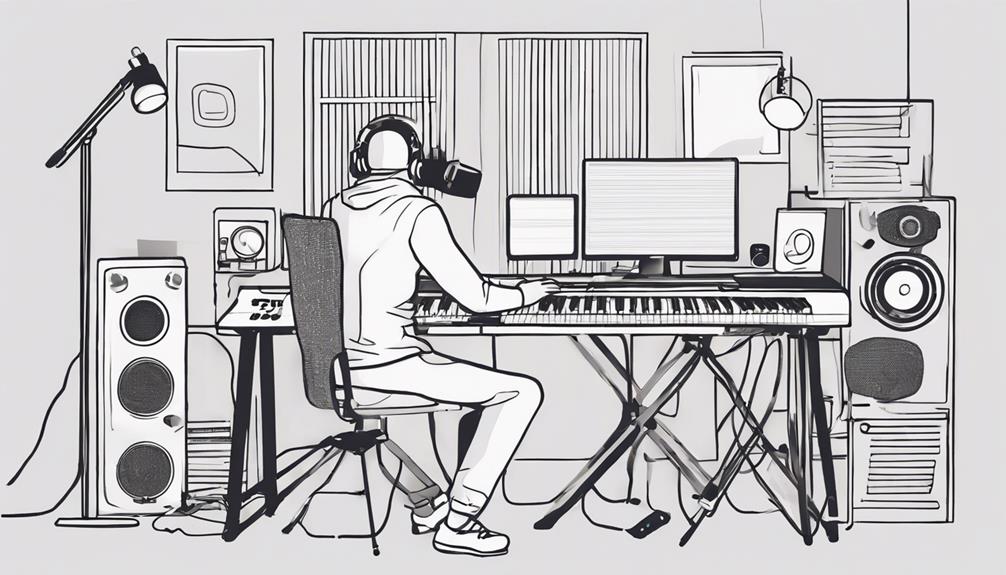
Sign up on platforms like Fiverr and Upwork to start offering virtual studio sessions and remote mixing services to clients.
Provide a range of music production services including recording, editing, and composing to attract a diverse clientele.
Promote your services on social media and websites to expand your online presence and reach potential customers.
Virtual Studio Sessions
Consider setting up virtual studio sessions to offer your music production services online, connecting with clients globally through platforms like Fiverr and SoundBetter. Virtual studio sessions provide a way for music producers to collaborate with global artists, offering recording services, mixing and mastering, and professional production assistance remotely.
Here are some key points to keep in mind:
- Global Reach: Reach out to artists worldwide and expand your client base beyond geographical boundaries.
- Flexible Scheduling: Offer flexible scheduling options to accommodate different time zones and client preferences.
- Professional Services: Provide high-quality production services to maintain a positive reputation and attract more clients.
- Remote Collaboration: Embrace remote collaboration tools to work efficiently with artists from different locations.
- Promotion: Utilize social media and online platforms to market your virtual studio sessions and attract potential clients.
Remote Mixing Services
To expand your online music production services, consider offering remote mixing and mastering services to cater to clients worldwide.
Utilize platforms like SoundBetter and Upwork to showcase your skills and attract a broader audience.
Provide potential clients with high-quality samples of your work to demonstrate your expertise and professionalism in delivering exceptional sound quality.
Setting competitive rates based on industry standards and your level of experience can help you attract a diverse range of clients while ensuring fair compensation for your services.
Grow Your Brand Presence
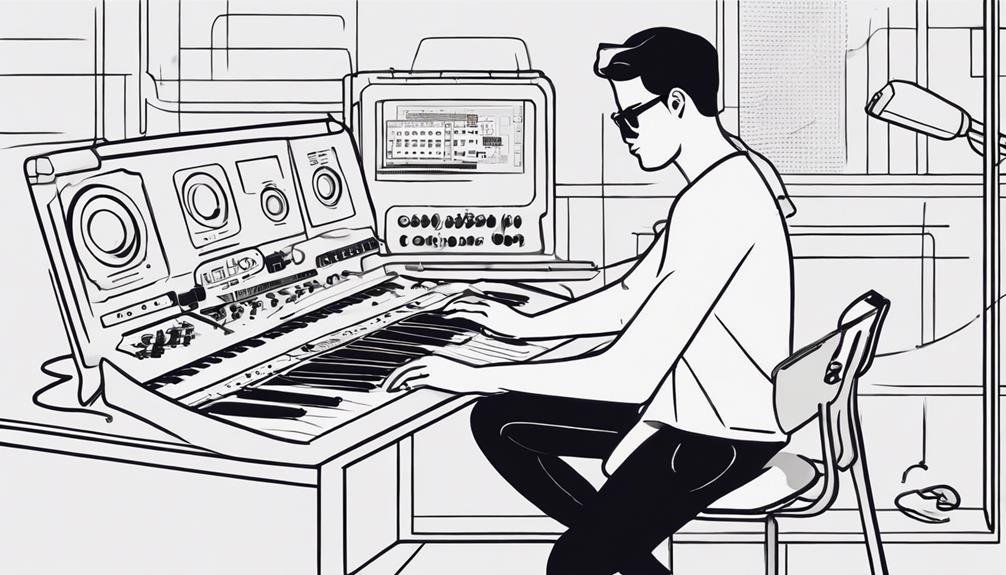
Enhancing your brand presence is essential for establishing credibility and attracting clients in the competitive music production industry. To effectively grow your brand presence, consider the following strategies:
- Utilize social media platforms to promote your services and engage with your audience.
- Maintain consistent branding across all your online platforms to create a cohesive image.
- Keep your audience engaged by regularly updating content and sharing interactive posts.
- Collaborate with other artists, producers, and influencers to expand your brand reach and connect with new audiences.
- Offer behind-the-scenes looks and insights to build a loyal following and establish a personal connection with your fans.
Additional Revenue Streams
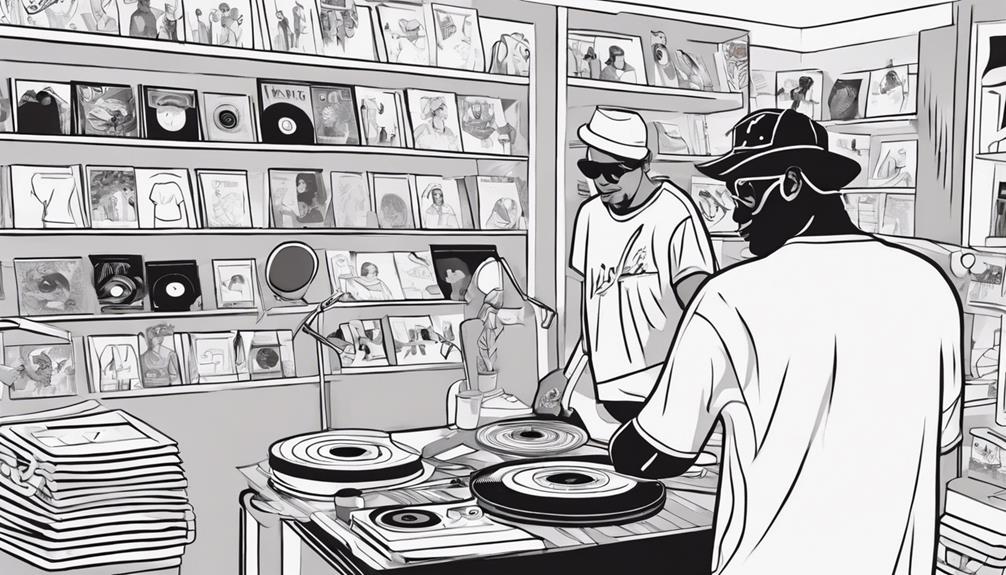
To explore your revenue streams in the music production industry, exploring additional avenues outside of traditional music production can greatly boost your income potential.
Selling music merchandise is a lucrative option, with artists making up to $45,000 annually from merch sales alone.
Teaching music production online on platforms like Udemy and Skillshare can also be profitable, with instructors earning up to $10,000 per course.
Another avenue to explore is creating and selling sound design presets for synths, such as Serum or Massive, which can generate passive income with packs selling for $20-$50 each.
Offering mixing and mastering services is another way to increase your income, with rates ranging from $100-$300 per song for professional-quality work.
Additionally, participating in music challenges and competitions not only boosts exposure but can also lead to cash prizes ranging from $500 to $5,000.
Explore these diverse revenue streams to maximize your earnings in the music production industry.
Frequently Asked Questions
How to Make Money From Music Production?
To make money from music production, hone your skills, produce quality beats, offer services like mixing, mastering, and tutorials online, collaborate with artists, and monetize your music on streaming platforms. Expanding your online presence can boost earnings. Additionally, licensing your music for use in commercials, films, and video games can create another steady revenue stream. Building a strong brand identity and networking within the industry are essential strategies to earn from music production. By staying consistent and keeping up with trends, you can position yourself for long-term success in the competitive music market.
How Do I Make Sure I Get Paid as a Producer?
Want to guarantee you get paid as a producer? Register with PROs, use contracts, track royalties through platforms like SoundExchange, offer payment options, and stay updated on industry standards. Protect your financial interests!
Is Beat Making Profitable?
Beat making can be profitable for you, with earnings ranging from $20 to $500 per beat. Platforms like BeatStars and Airbit offer global exposure. Licensing for commercials and building a strong brand are key to success.
How to Get Paid for Beats?
Want to get paid for beats? Price competitively, promote on social media, use licensing options, collaborate with artists, and consistently produce high-quality beats. Engage with your audience, adapt to trends, and watch your revenue grow.
Conclusion
So, don't just sit back and wait for the money to come to you – go out there and make it happen!
Imagine your music production career as a tree, with each revenue stream as a branch that can bear fruit. By diversifying your income sources and actively seeking out opportunities, you can guarantee a steady flow of income that will help you grow and thrive in the competitive music industry.
Keep pushing forward and watch your financial success blossom!

